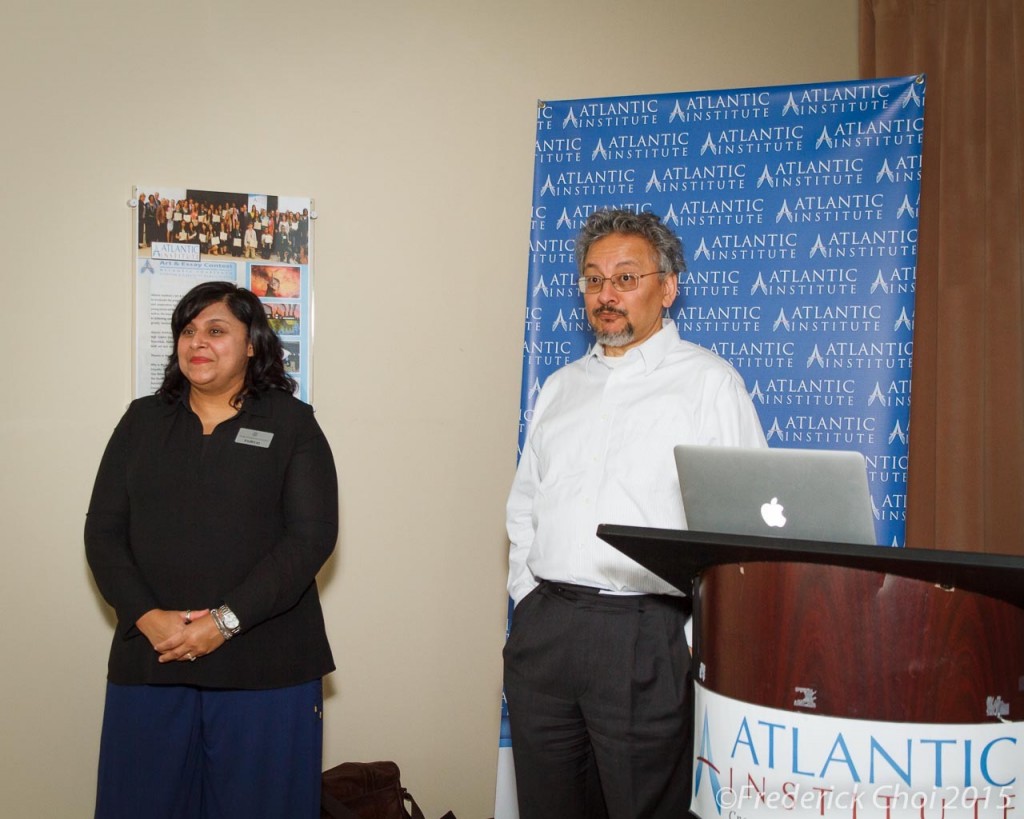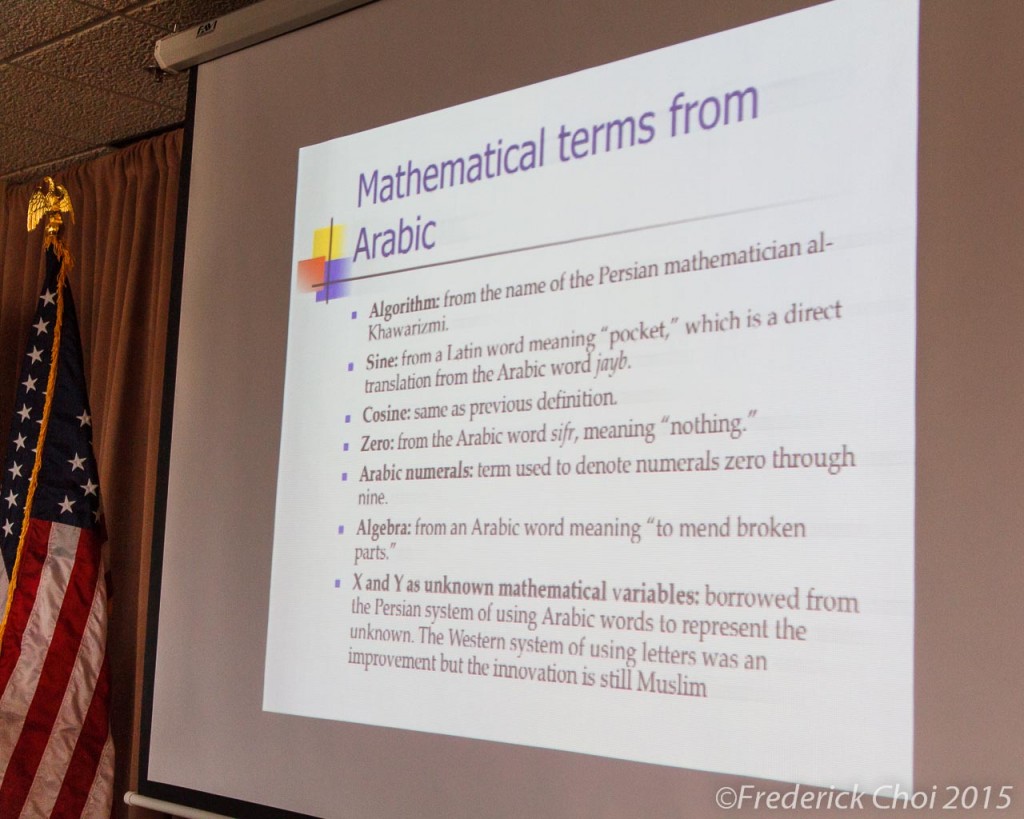The Medieval period following the Renaissance is regarded as a primitive age of thought for civilizations at this time. However, as the Western world struggled to develop, the Islamic world flourished. This led to the development of the sciences and the advancement of their culture. While often misrepresented, the time of Islamic enrichment is also under-appreciated to common historical accounts of this era. Therefore, it is important to appreciate contributions coming from various regions to create a global understanding of different cultures.
Muslim Contribution’s Effect on History
On Tuesday, March 4th Go Eat Give partnered with The Atlantic Institute to host a lunch. The event educated the Atlanta community about Muslim contributions to society. It presented on contributions that the Islamic world had brought into society during the European middle ages. Georgia State University Political Science Professor Rashid Naim and Fairyal Halim from the Islamic Speakers Bureau of Atlanta shed light on the Islamic Golden Age, depicting it as a spread of humanism from Arab states to Europe which was the underlying philosophical movement that led to the era of the Renaissance.

The presentation weighed heavily on the impact Muslims had on public education. Halim spoke about the Islamic civilization as the first that placed importance on educating the masses by democratizing education. Arabic was the “language of civilizations” and attracted scholars from all over the world. The city of Cairo in Egypt houses the oldest university that has been continuously open to date. Many educational awards used today come from the Islamic culture, such as the concept of achieving a diploma, and wearing a graduation cap. Have you ever wondered why the graduation cap is flat? Its designed to be flat is from the tradition of scholars balancing the Qur’an on their heads.
Arab Influences on Health and Everyday Necessities

With the growth of educational programs, the Arabic world also advanced health care at the time. Cairo became home to the Ahmad ibn Tulun hospital that opened its doors to citizens of all faiths and backgrounds. It is one of the first institutions to offer assistance for the mentally ill. Throughout the Arabic world, other hospitals mimick the secular structure of Tulun Hospital. Another great invention that society has probably taken for granted was soap. The advancements made from the Arabic world during the Medieval era resulted in fundamental necessities. We rely on such every day for health safety and overall cleanliness.

The mission of Go Eat Give’s speaker series is to educate the public of the cultural contributions of Islam in society, an often overlooked segment of the population in the west. One Region Atlanta grant funds the programs. In addition, it builds a more inclusive region by providing civic engagement and community building opportunities that connect metro Atlanta residents of all cultural and faith backgrounds.
~ By guest blogger, Lilly Iijima. Lilly is a student at Oglethorpe University pursuing a major in International Studies with a minor in Japanese. Growing up in a multi-cultural household, she has seen first-hand the power of personally experiencing a different culture to eliminate previous misconceptions. Through this work, Lilly is committed to educating others about different countries and regions while learning about them herself.